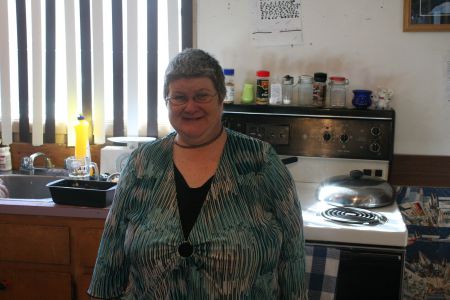(K'JIPUKTUK), HALIFAX - A hard life just got harder for a Dartmouth woman after Community Services suspended her income assistance payments for at least six weeks.
Vicki Butler, co-chair of the Dartmouth ACORN chapter, tells the Halifax Media Co-op that the suspension was issued because earlier this year she missed one day of a mandatory course she was taking, and was later unable to make up for the lost day.
In either case she was simply too sick to attend, says Butler, who suffers from diabetes.
“I couldn't make it that day because my feet were swollen so bad. My hands get swollen, so do my feet. I lose my balance and walking is very painful, because I have diabetic nerve pain,” she says.
No income assistance money means no medication, among other hardships.
“I am pretty destitute right now. When I got my very last cheque in September I took $30 out of my grocery money to pay for my pills. Now I don't have any left, I can't afford them,” she says. “I have been off my diabetes pills for two weeks now.”
Butler explains that she informed the group that organized the course that she would be unable to attend the day she was not well. She was told that was fine, and to just return the next day. She even received a certificate of course completion.
Nonetheless, Community Services decided to withhold Butler's payments. A letter from the department states that Butler may request that her file be reopened on November 15th. No reason for the punishment is provided in the letter.
November 15th is a Saturday, and Community Services offices are closed.
In an email to the Halifax Media Co-op Lori Errington, spokesperson for Community Services, explains that she cannot comment on the specific circumstances of any case. But she encourages Butler to contact her caseworker or to speak to a supervisor.
“Community Services staff understand that interrupting benefits could be very stressful for clients, so this measure is not an option of first resort. It is never taken lightly, and there is a process in place for clients to have their cases reviewed,” Errington writes.
Butler tells the Halifax Media Co-op that she submitted a letter to start the appeal, but isn't sure what happened with it.
And she tried speaking with her caseworker.
“She said go to the churches for help,” Butler says. “That was in the week before Thanksgiving. So I said (to my caseworker), you get to sit down for a nice Thanksgiving dinner, but what am I to do? It's as if all I am is a statistic to them. No compassion at all.”
“It's an exceptionally harsh penalty, no matter what the person did,” says Wayne MacNaughton.
MacNaughton is a long-time advocate for people on low incomes. In Nova Scotia, MacNaughton works with the Community Advocates Network. He also sits as a board member of Canada Without Poverty.
“Community Services policies make for a very patronizing system. It is very much about micromanaging people's lives,” says MacNaughton, who would much prefer some type of guaranteed livable income for every adult with a minimum of strings attached.
Butler enjoyed the course that started all her recent troubles. Participants learn skills such as conflict resolution, assertiveness and self confidence.
“But then after getting that letter, my self-confidence is gone right down, my self-esteem is so low it's not good,” says Butler.
Follow Robert Devet on Twitter @DevetRobert



